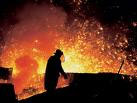| |
|
| |
|
 |
Supply
Chain by the Numbers |
| |
|
| |
- March 19, 2015 -
|
| |
|
| |
|
| |
|
| |
China Dumping Steel Worldwide at Record Pace; Wisconsin Says Yes to Right to Work; Unilever Says No to Landfill Waste; US Manufacturing Trending Down |
| |
|
| |
| |
| |
63% |

|
|
|
| |
| |
|
0
|
|
That's how much waste is being generated at all of consumer products good giant Unilever's 241 factories worldwide, as it met in 2014 a goal set several years back. Unilever chief supply chain officer Pier Luigi Sigismond says that the company will save about 200 million euros annually from the effort. In addition, Sigismon also provocatively says that "In developed economies there is no excuse any more not to do this. If a company is not doing this, you start to think it is simply because they don't care." Unilever will host a conference for suppliers later this year to share their lessons for success to get to zero landfill waste - and Sigismon says that while it won't dump suppliers for now for failing to get on board, that could change in the future.
|
| |
| |
|
| |
| |
3 |

|
Number of consecutive months of a decline in US manufacturing output, after the latest numbers for February were released this week by the Federal Reserve. The declines have been small – 0.2% in February after drops of 0.3% and 0.1% in January and December, respectively - but worrisome nevertheless after many months of gains. The February decrease took the index number back down to 101.3, meaning manufacturing output last month was 1.3% above the average month for the peak and baseline year of 2007. US manufacturing output finally reach that 2007 level in July of 2014, after a long but steady climb from the bottom of the recession in June, 2009, when the index fell to just above the 80 mark - a stunning fall. Like other negative indicators, the February number is being blamed partly on the bad winter weather. There will be a lot of eyes looking at the March number though.
|
| |
| |
|
|
|
| |
 |
 |
| |
|
|
| |